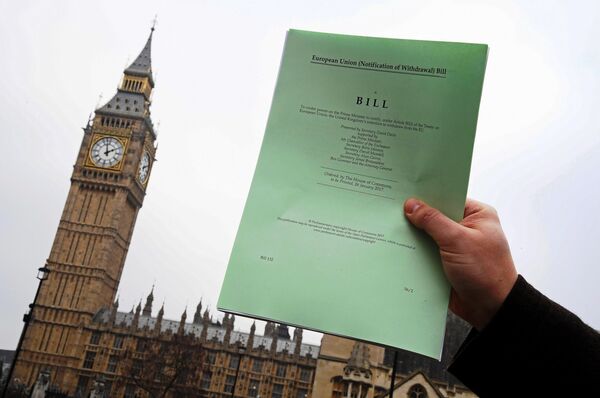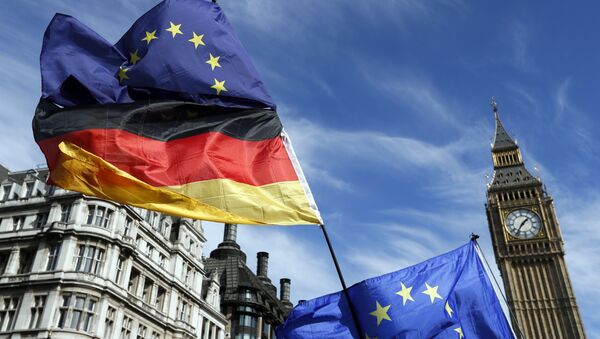The survey, carried out in nine EU countries, found that just 20 percent of Germans were in favor of offering the UK privileged status after its exit from the EU. In France, 31 percent of respondents were in favor of a special status for the UK after Brexit.
The UK invoked Article 50 and began the process of leaving the EU in March, and negotiations between the UK and the EU are set to begin in June.
From the EU's perspective, two of the key sticking points are the status of EU citizens living in the UK and the payment of billions of euros in EU contributions which Brussels maintains are owed by London.
According to the Die Welt survey, 88 percent of Germans insisted that the British must pay their debt to the EU, while 80 percent agreed that the status of EU citizens living in the UK is a priority during talks.

In the UK, debate has been dominated by the issues of access to the single market and immigration. Since the EU has insisted that access to the single market must include acceptance of freedom of movement, in January Prime Minister Theresa May acknowledged that a Brexit deal "cannot mean membership of the single market," despite the repercussions for the country's service-based economy.
"Europe's citizens have already made the break with Great Britain. Now it's about the interests of the EU 27," Weber said.
On Thursday, the Bank of England warned that UK households are starting to feel the effects of higher inflation and uncertainty about the terms of the UK's future relationship with the EU.
"With wage growth moderating and inflation picking up, household spending and GDP growth have slowed markedly," Bank of England governor Mark Carney told a press conference.
Inflation is at its highest for three years and is predicted to reach 2.7 percent this quarter. Since the Brexit vote on June 23, the British pound has declined 13.4 percent against the dollar, leading to a corresponding rise in the cost of imports.
In addition, the bank forecast GDP growth at 1.9 percent for the year and said that uncertainty is affecting companies' decisions about whether to raise workers' wages.
"Uncertainty for companies about the outlook may also have made them unwilling to raise wages at a faster pace until they have more clarity about future costs and market access," Carney said.






